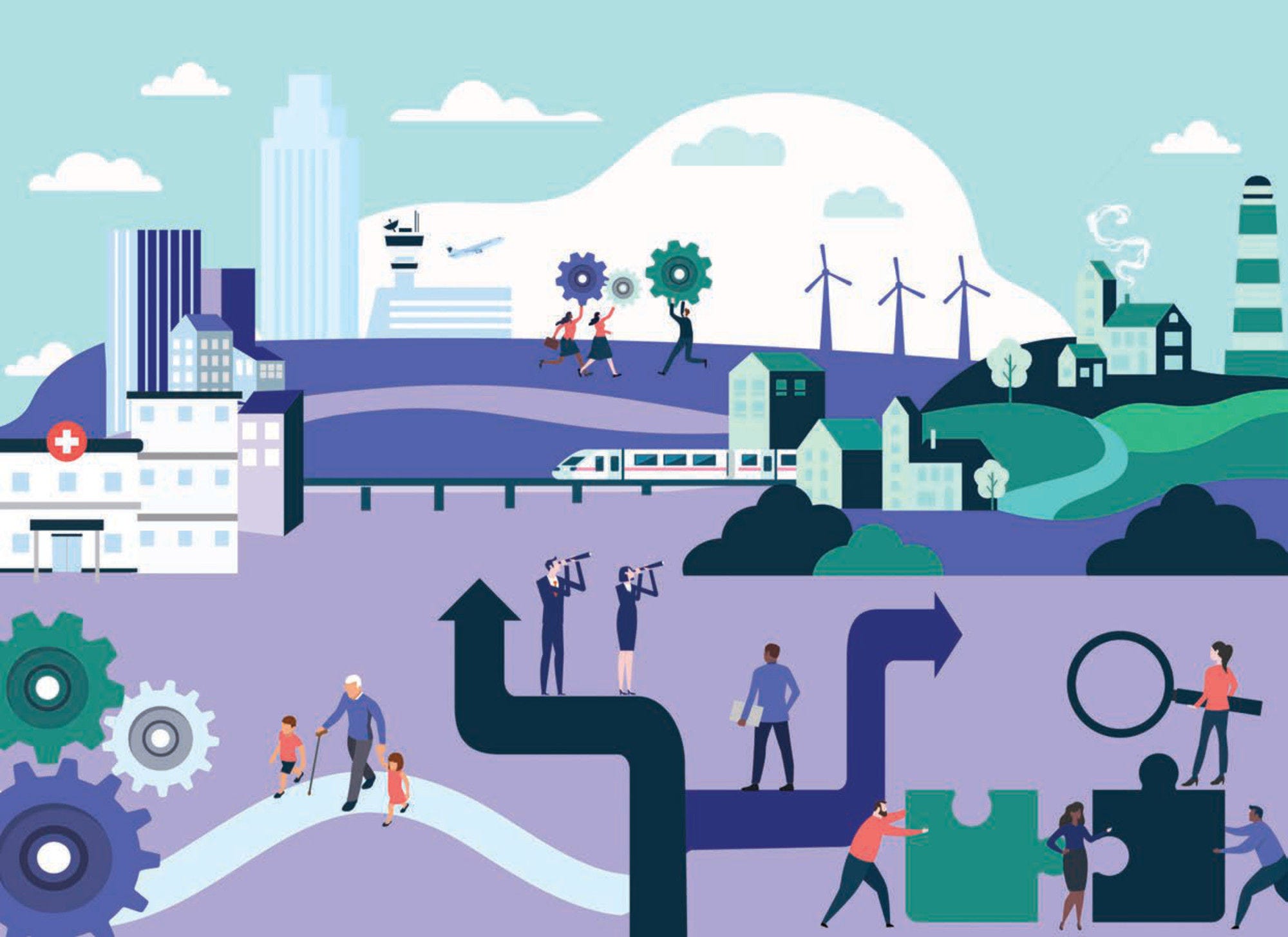Regional, rural and urban development
The OECD helps all subnational regions to become more equitable, inclusive and resilient by prioritising well-being. Our work addresses global trends like climate change, digitalisation, migration, jobs and demographic shifts by applying a local lens. Using a place-based approach and OECD regional data, we help improve lives for people, places and firms at the local level.
Policy area
Share
Facebook
Twitter
LinkedIn
Policy issues
-
Regions and cities need more and better-quality jobs. The twin green and digital transitions, along with demographic change, are transforming the way we work and redefining local economies and communities. Seizing new opportunities and responding to these changes demands innovative solutions, support for small businesses, and investment in communities, alongside efforts to upskill the workforce to better match job demands. The OECD provides expertise in developing and implementing policies and local initiatives aimed at creating more and better jobs leading to tangible results for local economic development.Learn more
-
Multi-level governance refers to the system that supports policy and decision-making among national, regional, and local governments. When these levels of government work well together, policies are more likely to succeed, fostering development in all places. The OECD actively supports effective decentralisation and regionalisation reforms, as well as the strategic planning, implementation and performance measurement of regional policies at all levels of government.Learn more
-
Quality regional development policy is essential for inclusive economic outcomes, well-being, environmental sustainability, and resilience. Regions, cities and rural areas play a crucial role in responding to megatrends including climate change, digitalisation, demographic shifts, and globalisation, which have very different effects within OECD countries. At the same time, regions within OECD countries vary widely in their social and economic structure, performance, and well-being. This diversity calls for a place-based approach to regional development, tailored to the needs and assets of each area.Learn more
-
A thriving rural community relies on factors such as quality services, accessible education and healthcare, environmental amenities, business opportunities, and strong social trust. The OECD analyzes and adapts policies, working closely with member countries, to address diverse rural challenges, to strengthen economies and support inhabitants while guiding governments in implementing effective rural development policies.Learn more
-
Subnational governments are key policy actors, accounting for about 40% of total public expenditure and 55% of total public investment on average in OECD countries. Subnational governments are also key public employers, representing more than 60% of public staff expenditure on average in the OECD.Learn more
-
We work with national, regional and local governments to achieve competitive, sustainable, inclusive and resilient cities of all sizes while improving residents’ quality of life. From addressing climate change to preparing for demographic change and embracing the digital transition, we support governments in all areas of urban policy to unleash the transformative power of cities.Learn more
Programmes
-
Local skills systems connect local employers, workers, government, social and economic partners, universities and training providers to support growth, innovation and better jobs. We support building stronger skills systems where local employers find the talent they seek and individuals have access to life-long learning opportunities.Learn more
-
The social economy pioneers new business models, provides essential services, contributes to job creation and a fairer, green and digital transition, engages youth and builds communities. National, regional and local governments can use this toolkit to implement the OECD Recommendation on the Social and Solidarity Economy and Social Innovation.Learn more
-
Given the urgency of the climate crisis, it is more important than ever to improve our understanding of the financial role of subnational governments in the net-zero transition, to track the progress regions and cities are making towards achieving the Paris Agreement commitments and other green objectives. It is also critical to identify areas where further action is needed for regions and cities to align their expenditure, investment, and revenues with their climate goals, and to mobilise additional sources of finance.Learn more
-
Local policy makers and practitioners benefit from meeting with their peers on what works and why. We provide a forum to facilitate peer-learning and capacity building around local employment and economic development.Learn more
-
Local employment systems offer efficient matching of employers and workers at the local level. In our work, we review how employment systems can be best geared to local needs through active labour market policies sensitive to local needs and their integration with other local services.Learn more
-
We offer best practice on how to create more and better quality jobs through effective policy implementation and local initiatives.Learn more



